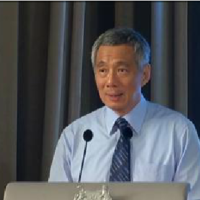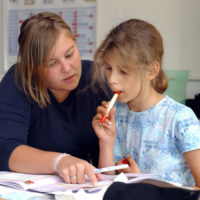New South Wales Starts Roll Out of New Curriculum in January
As a first step in updating its kindergarten to 12th grade curriculum, New South Wales will introduce new English and Math syllabi for K-2 students in January. New curricula for students in upper elementary, middle and high school will follow by 2024. The update is in response to the first comprehensive review of the K-12 curriculum in more than 30 years, which recommended “decluttering” the curriculum and emphasizing deep learning of core concepts, moving to proficiency-based learning, and strengthening pathways for students to university and vocational training. The new early elementary syllabi will emphasize foundational reading and math skills, will no longer have learning timelines so students can achieve learning outcomes at their own pace, and will provide teachers with examples of how to teach core concepts. Read more at The West Australian.

Singapore Expands Efforts to Support Disadvantaged Students

Singapore Prime Minister Lee Hsien Loong announced that the Enhanced School Resourcing program, which began in 2019 as a pilot, will be expanded to additional primary and secondary schools. The expansion was motivated, according to Mr. Lee, by concern about the long-term impact of COVID on vulnerable students. The program provides schools with more teachers and resources to support disadvantaged and at-risk students. Schools develop customized programs such as re-integration and academic support for students with absenteeism issues or after school programming designed to encourage attachment to schools. The Prime Minister said the government will also expand its community support network which helps families connect with government agencies and community-based resources as needed. “Our mission is to uplift our children, preserve social mobility and deliver on the promise of a fair and just Singapore for our next generation and beyond,” Mr. Lee said. Read more at TODAY.
British Columbia Allows First Nations to Certify Teachers
New legislation in British Columbia allows First Nations to certify and regulate teachers in their own schools. Jurisdiction over teachers is a key element in granting First Nations authority over education in the province, which was agreed to in 2006. Education Minister Jennifer Whiteside said: “These legislative changes are a concrete step forward in implementing the province’s reconciliation commitments as we commit to advance education outcomes for indigenous students.” Hugh Braker of the Tseshaht First Nation, one of the negotiators in the agreement, explained that “…our ability to certify and regulate teachers who we know are the right fit for our schools and students” is essential for control over First Nations education. The new legislation also adds a First Nations Education Authority representative to the British Columbia Teachers Council, the body that establishes standards for teachers. For more see BC Government News.

Teacher Shortage has Dutch Schools Considering 4-Day Week

Nine-in-10 school principals in the Netherlands say they can’t find enough substitute teachers, according to a survey by the General Association of School Leaders, the principals’ union. The survey found the staffing shortage has driven half of school leaders to consider cutting back to a four-day school week. While the idea of such a move is growing in popularity, it’s currently not allowed by the Netherland’s education ministry. Officials do have the ability to grant schedule waivers for up to seven weeks, however, but that is likely not enough time for many schools to staff up.
Alberta Signs Deal with Federal Government to Reduce Child Care Costs
Alberta and the federal government in Canada reached an agreement to bring down the cost of child care. The federal government will invest CAN$3.8 billion over five years, which will bring down the cost to CAN$10/day by the end of 2026. It is the 9th jurisdiction to sign on to the CAN$30 billion federal five-year plan announced in April, aiming at reducing child care costs and raising quality across the nation. Families in the province will see a 50 percent reduction in their costs by 2022 before hitting the target of CAN$10/day four years later. Alberta Premier Jason Kenney said that the plan would mean “more jobs” for the province. Prime Minister Justin Trudeau heralded the agreement as proof that “we can get things done” on “what matters most to the people we serve.” For more, see The Calgary Herald.





